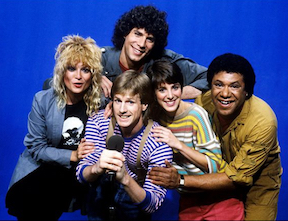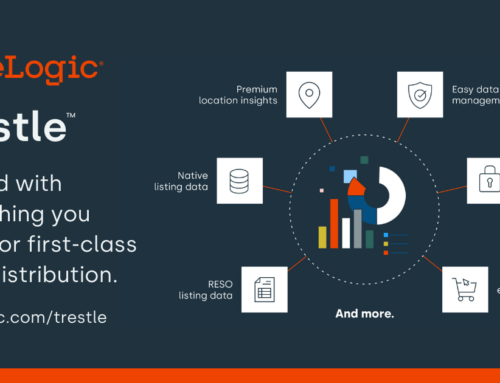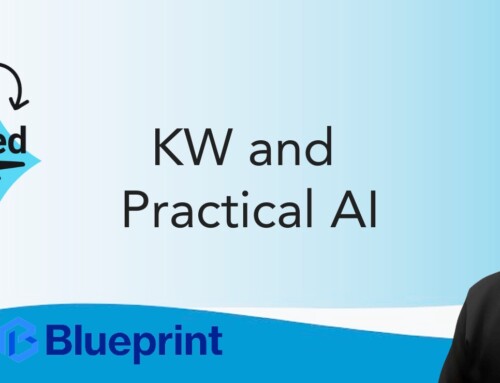 Did you read John Mosey, Broker Public Portal Chairman and head of NorthstarMLS, article in the latest issue of Real Estate magazine? “You Got Your MTV, Now Say ‘I Want My BPP’” calls for a new battle cry for the BPP with Homesnap movement. It reminded me, once again, of how people, when they come together, can cause remarkable change. Change that in the beginning everyone thinks is impossible and certainly improbable.
Did you read John Mosey, Broker Public Portal Chairman and head of NorthstarMLS, article in the latest issue of Real Estate magazine? “You Got Your MTV, Now Say ‘I Want My BPP’” calls for a new battle cry for the BPP with Homesnap movement. It reminded me, once again, of how people, when they come together, can cause remarkable change. Change that in the beginning everyone thinks is impossible and certainly improbable.
The Parallels of Cable and the Internet
The MTV analogy in John’s article is highly personal for me. I was part of the MTV Generation. The time when Music Television actually played only music videos. Remember the original MTV VJs? The Video Disc Jockeys of MTV? I do. Nina Blackwood, Mark Goodman, Alan Hunter, J.J. Jackson and Martha Quinn.
I met Quinn when I visited the MTV Booth at the 1983 Cable Convention in Houston. I was working on my graduate thesis at USC – “The Impact of Narrowcasting on the Public Relations Profession.” She was gracious and warm, and after a brief conversation, somehow, I passed on her offer of what today we would call a selfie. She was my favorite VJ, but I was trying to act “professional” at the time. I said, “No thanks.” That’s a moment I still regret.
I have always remained a fan of how MTV helped revolutionized the cable industry. What’s most interesting to me are the similarities I see between cable and the internet. Conceptually, what cable did was break up the mass media monopoly of broadcast television. The idea of narrowcasting was to provide targeted programming that better met the needs of a more defined audience. Isn’t that what the internet is all about?
In fact, if you look at the early days of cable, the parallels between the Internet and the startups that it enabled are incredibly similar. Dozens of young entrepreneurs emerged with cable and the media covered their stories closely. It was not uncommon for an innovative new start-up cable channel to start bootstrapped. Many of the hottest cable channels back then still exist today, albeit most were gobbled up by media conglomerates.
More to Come
Looking ahead, conventional wisdom says rapid change is on the short horizon for the real estate industry. I have to take a pause to wonder if history will repeat itself. When I think back to the early days of cable, which I followed closely, I seem to recall conventional wisdom had dire predictions for the major networks.
The hot new cable channels were “stealing” viewers in droves. Advertising dollars were chasing the new medium because it allowed companies to better target an already segmented audience. That made a company ad buy much more efficient. The politically incorrect terminology then: Why use a shotgun (broadcast networks) to target an audience when you could be using a rifle (a cable channel)? [I know, I get squeamish when I remember how this sentence was used so nonchalantly back then.]
But a funny thing happened to the broadcast networks. Their revenue shrunk, for a while, but then instead of going out of business, the opposite happened: they grew! Conventional wisdom was wrong. Even though their audience size — as a percentage of our growing population — was smaller than before, broadcast networks were the best place to reach the biggest mass audience at one time. Networks realized they still had remarkable value and started charging more instead of less, despite the fact they were delivering a smaller audience.
A history lesson for the internet?
Now lay over the internet world of today on that history lesson and think about the implications. Many people are counting the years – even months – that traditional real estate brokerages will disappear from the landscape. Or that Realtors commissions will collapse so low that buying and selling a home will be a commodity service like it is in the UK: odorless and colorless. Or that robots will replace Realtors. You take your pick of the doomsday scenario painted by some of the disruptors.
But what if conventional wisdom is wrong? Really wrong. What if traditional real estate adapts like the broadcast networks did? What if instead of charging less, brokerages deliver more value than the alternative, and that allows them to charge more? We already know from history that people are more than willing to pay for something that is worth more; sometimes a LOT more for a much better experience.
Dare to Think Different?
It is just a thought. I may be completely off my rocker on this one. But then again, think about this. In 1985, the cost of a Super Bowl commercial was $550,000 or $1.288 million in today’s dollars, adjusted for inflation.
1985 was the first time a 30-second spot topped a half-million dollars. It reached nearly 93 million viewers. This February 2018, companies paid $5.4 million for a 30-second spot to reach just over 103 million people. In 1985, the US population was 238 million; today, it is almost 326 million.
If you would have bet me in 1985 that advertisers in 33 years would pay more than four times as much for a Super Bowl commercial to reach an audience that represented 8% less of the total US population, I would have thought you were insane and I would have bet my house (if I had owned a house in 1985). The result: I would have been homeless, and you would have been proven a genius.
Moral of the story: Never underestimate the incumbents of any industry, as long as they don’t remain asleep at the wheel.
[ Photo abovee: Nina Blackwood (left), Mark Goodman, Alan Hunter (center), Martha Quinn and J.J. Jackson ]





Very insightful. I’ve always maintained that the truly entrepreneurial spirit of the great leaders in our business today are bright enough to recognize a good idea when they see one (even if it isn’t theirs) and implement it as part of their own business model. They can also watch some ideas that looked good in the beginning fail and not endure the cost of making that same mistake. More often than not the innovators discover over time that there were bits of wisdom in the old way of doing things, and the old timer’s learn there might be better ways to do what they’ve been doing. I’ll go with the Zen masters tale at the end of “Charlie Wilson’s War” and say “We’ll see….”
Thank you for your comments, Larry. I’m especially grateful that it’s coming from a veteran who’s “been there, done that.” Love your final comment and could not agree more. Again, many thanks.